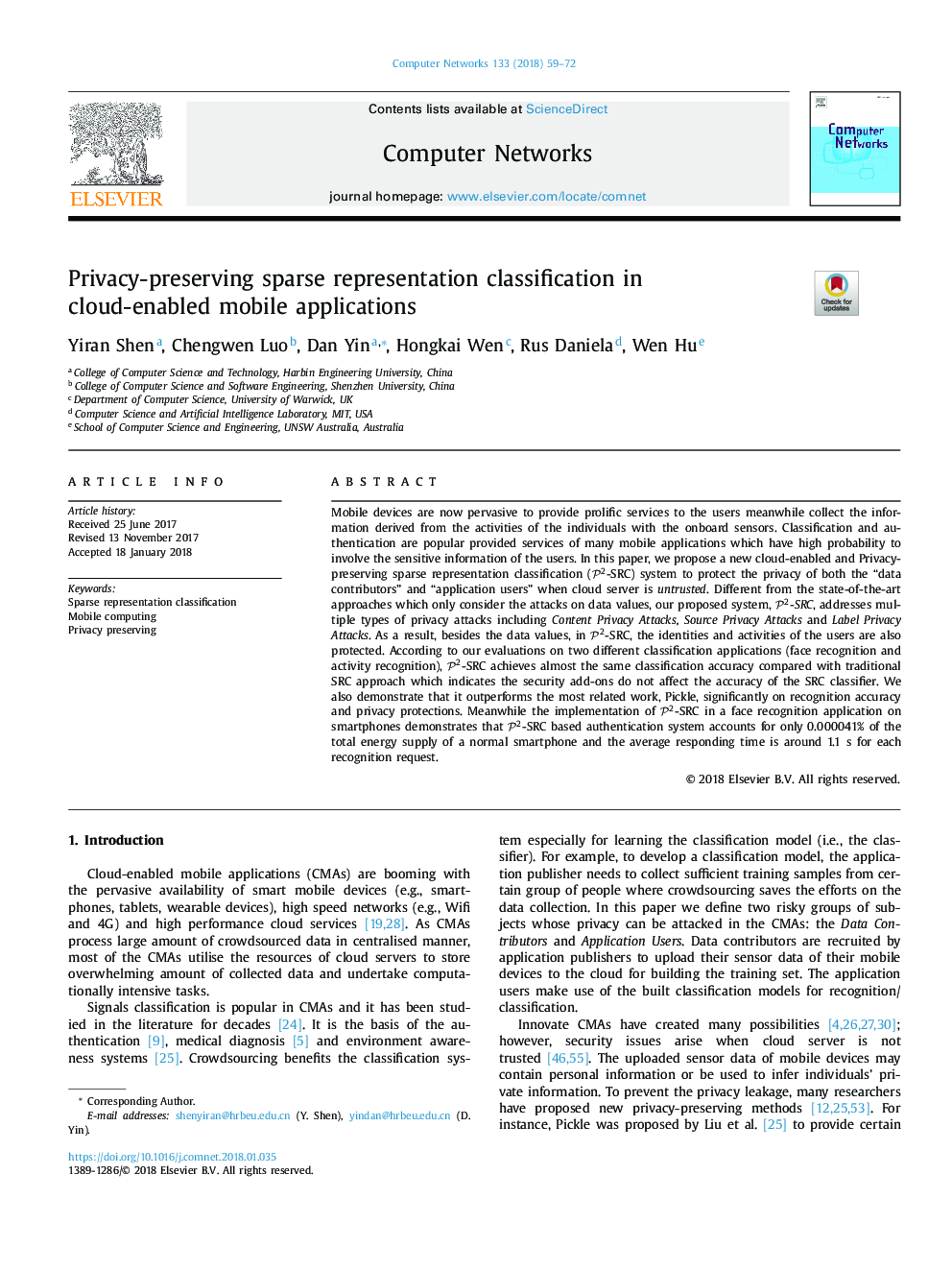| کد مقاله | کد نشریه | سال انتشار | مقاله انگلیسی | نسخه تمام متن |
|---|---|---|---|---|
| 6882768 | 1443886 | 2018 | 14 صفحه PDF | دانلود رایگان |
عنوان انگلیسی مقاله ISI
Privacy-preserving sparse representation classification in cloud-enabled mobile applications
ترجمه فارسی عنوان
حفظ حریم خصوصی طبقه بندی نمایندگی خرده فروشی در برنامه های کاربردی تلفن همراه فعال
دانلود مقاله + سفارش ترجمه
دانلود مقاله ISI انگلیسی
رایگان برای ایرانیان
کلمات کلیدی
طبقه بندی نمایشی انعطاف پذیر، محاسبات همراه، حفظ حریم خصوصی،
موضوعات مرتبط
مهندسی و علوم پایه
مهندسی کامپیوتر
شبکه های کامپیوتری و ارتباطات
چکیده انگلیسی
Mobile devices are now pervasive to provide prolific services to the users meanwhile collect the information derived from the activities of the individuals with the onboard sensors. Classification and authentication are popular provided services of many mobile applications which have high probability to involve the sensitive information of the users. In this paper, we propose a new cloud-enabled and Privacy-preserving sparse representation classification (P2-SRC) system to protect the privacy of both the “data contributors” and “application users” when cloud server is untrusted. Different from the state-of-the-art approaches which only consider the attacks on data values, our proposed system, P2-SRC, addresses multiple types of privacy attacks including Content Privacy Attacks, Source Privacy Attacks and Label Privacy Attacks. As a result, besides the data values, in P2-SRC, the identities and activities of the users are also protected. According to our evaluations on two different classification applications (face recognition and activity recognition), P2-SRC achieves almost the same classification accuracy compared with traditional SRC approach which indicates the security add-ons do not affect the accuracy of the SRC classifier. We also demonstrate that it outperforms the most related work, Pickle, significantly on recognition accuracy and privacy protections. Meanwhile the implementation of P2-SRC in a face recognition application on smartphones demonstrates that P2-SRC based authentication system accounts for only 0.000041% of the total energy supply of a normal smartphone and the average responding time is around 1.1Â s for each recognition request.
ناشر
Database: Elsevier - ScienceDirect (ساینس دایرکت)
Journal: Computer Networks - Volume 133, 14 March 2018, Pages 59-72
Journal: Computer Networks - Volume 133, 14 March 2018, Pages 59-72
نویسندگان
Yiran Shen, Chengwen Luo, Dan Yin, Hongkai Wen, Rus Daniela, Wen Hu,
